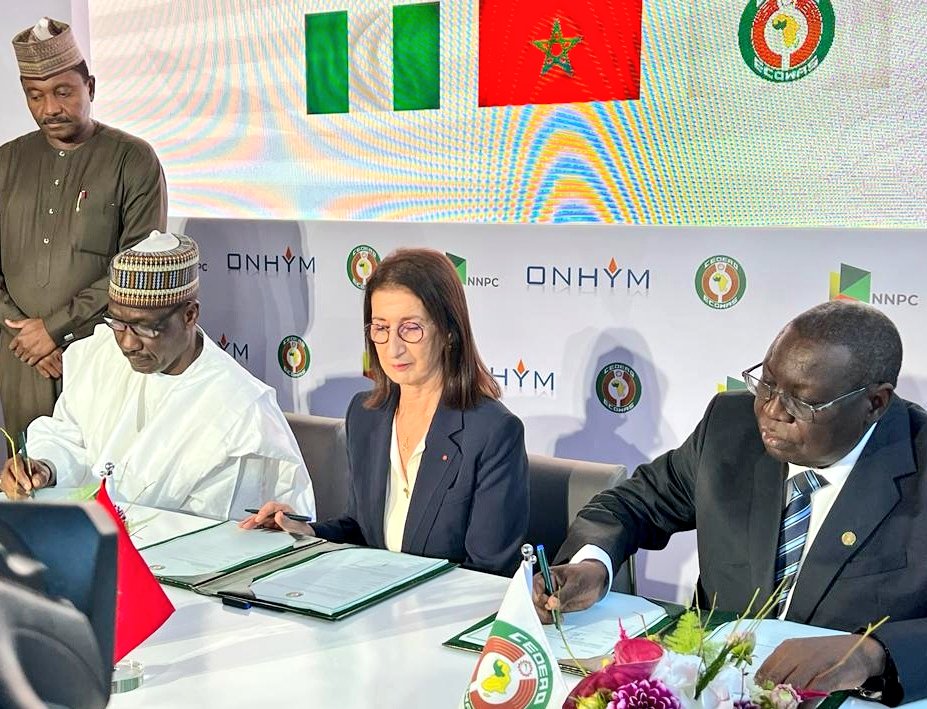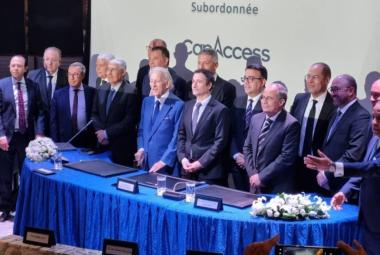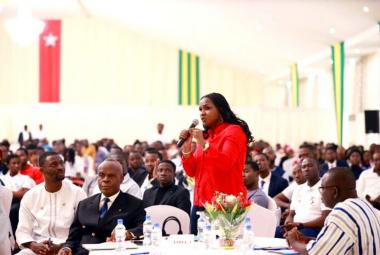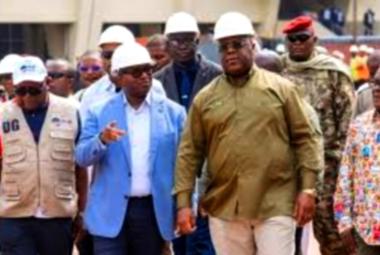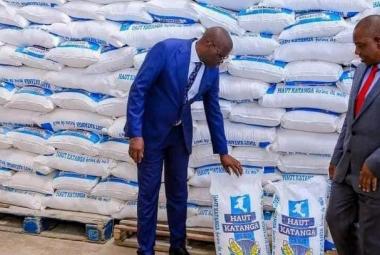The invasion of Ukraine by Russia has created a crisis situation with global repercussions in several areas. The gas shortage in Europe is one of them. And this consequence in terms of gas and other hydrocarbons has relaunched the project to create the pipeline between Nigeria and Morocco, with the signing last September 15 in Rabat, Morocco, of the memorandum of understanding relating to the Nigeria-Morocco gas pipeline, between the Economic Community of West African States (ECOWAS), Nigeria and Morocco. Explanations.
Launched in December 2016, during the visit of King Mohammed VI of Morocco to Nigeria, the Nigeria-Morocco Gas Pipeline Project (NMGP) is a joint initiative of the Federal Government of Nigeria and the Kingdom of Morocco. Its objective: to monetize Nigeria's abundant natural gas resources, thereby generating additional revenue for the country, diversifying Nigeria's gas export routes and eliminating gas flaring.
The ceremony which served as the framework to initial the memorandum of understanding by Sediko Douka, ECOWAS Commissioner in charge of Infrastructure, Energy and Digitalization, Mallam Mele Kolo Kyari, Chief Executive Officer of the National Nigerian Petroleum Company Limited (NNPC), representing Nigeria, and Amina Benkhadra, Director General of the National Office of Hydrocarbons and Mines (ONHYM), representing Morocco; took place on Thursday September 15 in Rabat, Morocco. Among other personalities who attended, there was on the Moroccan side, in particular the Minister of Economy and Finance, Nadia Fettah, the Minister of Investment, Convergence and the Evaluation of Public Policies, Mohcine Jazouli, and the Director General of the Office of Electricity and Drinking Water Abderrahim El Hafidi.
On the sidelines of the signing ceremony of a memorandum of understanding relating to the Nigeria-Morocco Gas Pipeline, between the Economic Community of West African States (ECOWAS), Nigeria and Morocco, Mr. Kyari indicated that the project will make it possible to produce electricity and chemical products from gas for a transition of the continent by 2050 or 2060.
According to Mele Kyari, Managing Director of the Nigerian National Petroleum Corporation (NNPC), the company he heads has the experience and technical capabilities to take the project forward from production to gas marketing, including through processing and transportation. With his vast experience in executing major gas infrastructure projects in Nigeria.
“As you know, our countries will benefit immeasurably from the execution of the project which goes beyond the supply of gas to energize the countries along the route,” he added. Some of the benefits include wealth creation and improved living standards, integration of economies in the region, mitigation of desertification and other benefits that will come from reducing carbon emissions”.
The Managing Director of NNPC indicated that, for his part, NNPC Limited will facilitate the continued supply of gas and provide other enablers such as the land required for the pipeline's first compressor station to be deployed in Nigeria, which is part of the thirteen stations planned along the pipeline route.
Also, he, on behalf of the Federal Government of Nigeria, thanked all the partners of this project. He expressed his gratitude to His Royal Majesty, King Mohammed VI of Morocco and His Excellency, President Muhammadu Buhari for entrusting NNPC Ltd with this strategic project.
By Stanislas Omotunde



